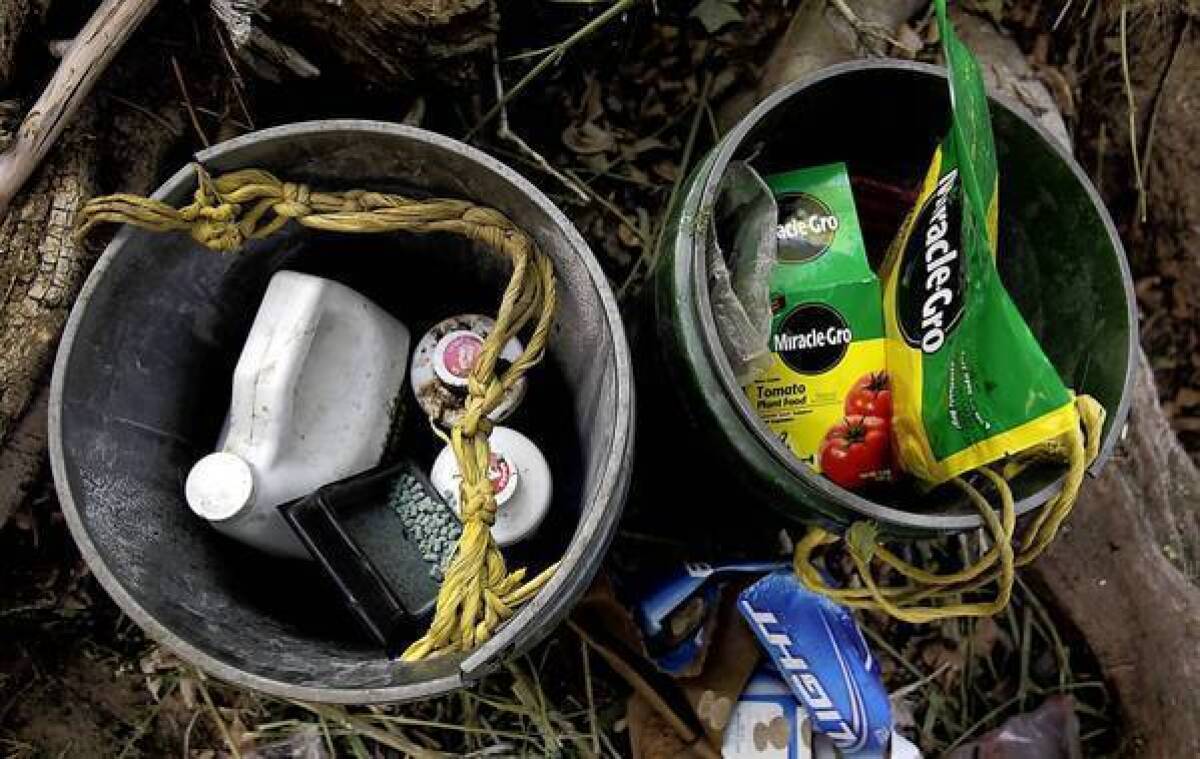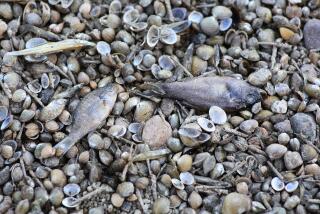Sierra pot-growing sites may be lethal for rare forest animal

- Share via
The illegal marijuana-growing operations that have proliferated in remote areas of the Sierra Nevada appear to be taking a toll on the fisher, a forest animal whose numbers are dangerously low.
Researchers studying fishers in the Sierra National Forest in the southern Sierra found that mortality rates were significantly higher for females living in areas with a number of marijuana-growing sites.
Liberal amounts of pesticides and anticoagulant rodent poison are commonly used at the operations, tainting small prey the fisher eats.
Although consuming contaminated prey may not kill the fishers outright, it could make them more susceptible to disease and parasites.
“Exposure may predispose an animal to dying from other causes,” wrote the authors, who summarized their findings in a paper published this week in the journal Conservation Letters.
Their research was a follow-up to an earlier study that found that tissue of 85% of 46 dead fishers contained traces of anticoagulants. Most of those animals had been killed by predators.
The fisher is a cat-size animal that is a candidate for listing under the federal Endangered Species Act. For the latest study, the scientists trapped fishers, outfitted them with radio collars and released them. The team then compared the animals’ movements with the location of marijuana-growing sites found by national forest law enforcement officers.
The final analysis excluded male fishers because their extensive movements made it harder to gauge exposure to the marijuana plots.
Noting that some of the pesticide compounds used at the sites were first developed as nerve agents during World War II, the researchers likened the pot operations to leaking chemical weapons stockpiles.
The association between growing operations and fisher mortality is “strong yet speculative,” wrote the authors, who noted it was difficult to determine a specific cause-and-effect relationship.
But they said the contamination raised serious conservation concerns.
“By increasing the number of animals that die from supposedly natural causes, these pesticides may be tipping the balance of recovery for fishers,” warned Craig Thompson, the study’s lead author and a U.S. Forest Service wildlife ecologist at the Pacific Southwest Research Station.
More to Read
Sign up for Essential California
The most important California stories and recommendations in your inbox every morning.
You may occasionally receive promotional content from the Los Angeles Times.











